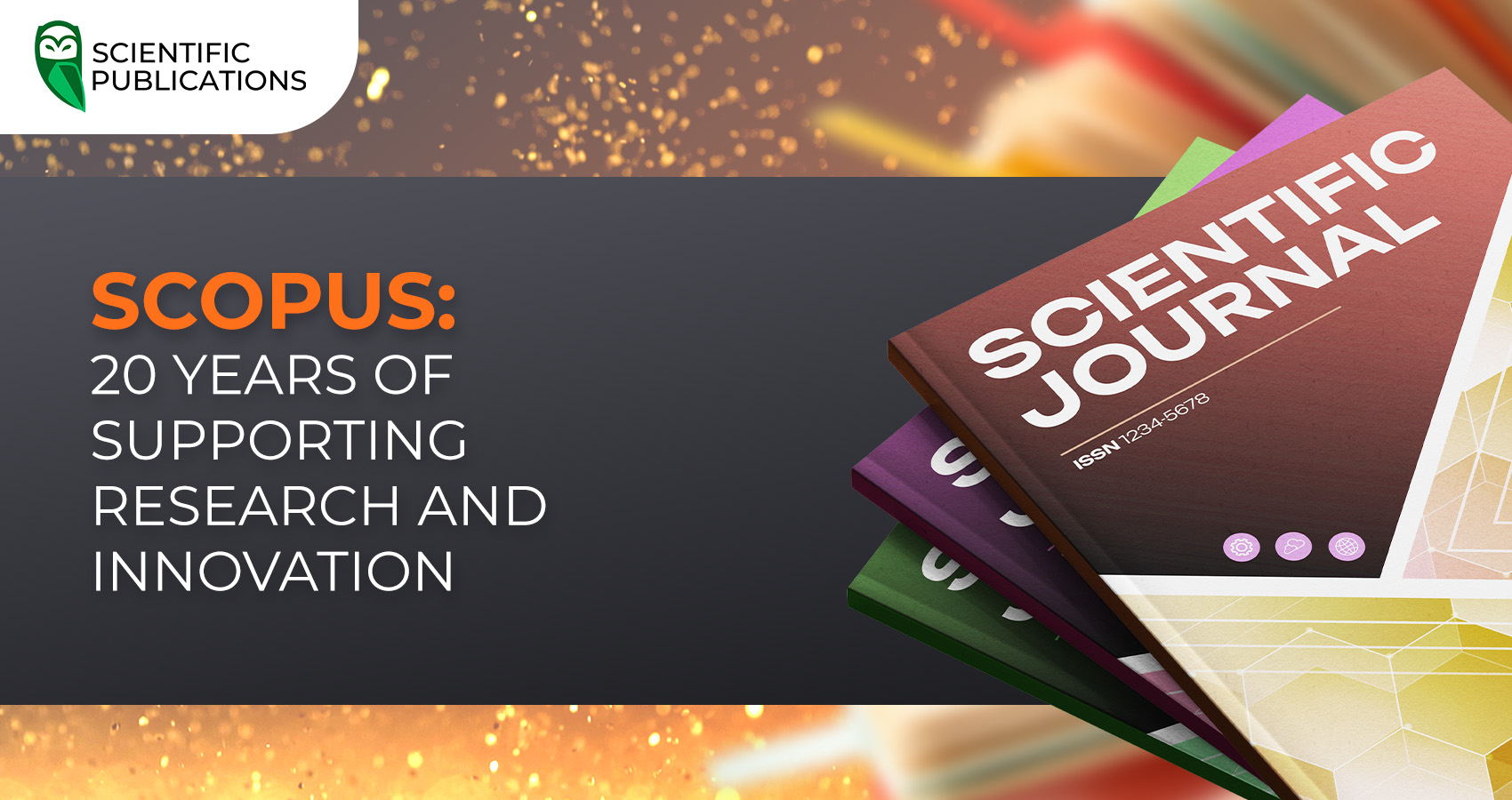Since its founding in 2004, Scopus has evolved into a powerful scientometric database, becoming an important tool for scientists. The Elsevier team has dedicated the last 20 years to innovation, constantly updating content and improving features for the convenience of users.

Today, the Scopus database is an important resource for the development of science, as it allows for faster dissemination of research results, stimulating the exchange of knowledge at the international level. Scopus also helps researchers from different countries to easily find partners for joint scientific work, contributing to the strengthening of global cooperation.
Development of Scopus
Scopus has undergone significant transformations, gradually expanding its content coverage. Now the database contains not only periodicals but also books, conference proceedings, preprints and other scientific sources. Elsevier specialists systematically improve and consolidate data, which enhances the functionality of Scopus and opens up new prospects for its use in scientific research.
Stages of Scopus development: key achievements 2005-2024
- 2005: Establishment of the Scopus Content Selection Advisory Board
- 2006: Launch of the author identifier
- 2007: Launch of the affiliation identifier
- 2011: Introduction of the author feedback wizard
- 2012: Integration with ORCID
- 2016: Launch of the CiteScore indicator
- 2017: Application of machine learning to Scopus data
- 2021: Adding preprints to Scopus
- 2021: Integration of data on the UN Sustainable Development Goals (SDGs)
- 2023: Launch of Researcher Discovery
- 2024: Launch of Scopus AI on the market
Scopus content and data
Since Scopus was founded, the volume of content has grown by more than 260%, and that's just the beginning. Scopus receives daily updates from more than 7000 publishing sources, which guarantees a wide and up-to-date range of information for users. At the same time, Elsevier pays special attention to ensuring high quality standards.
Scopus capacity in 2024:
- Journals – more than 28.3 thousand active publications.
- Books – more than 368 thousand titles.
- Conference proceedings – more than 161 thousand events.
- Preprints – more than 2.33 million preprints.
- Author profiles – more than 19.6 million.
- Publications – more than 94 million scientific papers.
- Citations – more than 2.4 billion.
Looking to the future
Scopus continues to move forward on the basis of innovative technologies. A new stage began in 2024 with the release of the first generative artificial intelligence for researcher search. In keeping with our tradition of innovation, Scopus AI is already well underway, and this is just the beginning of the journey to new opportunities in the field of research. You can read more about Scopus AI in our article.
We congratulate Elsevier and Scopus on 20 years of successful work, which symbolises a significant contribution to the development of science and scientometrics in the world. “Scientific Publications” helps scientists publish their research in this prestigious database, thus contributing to this development. Together to new heights and achievements!





